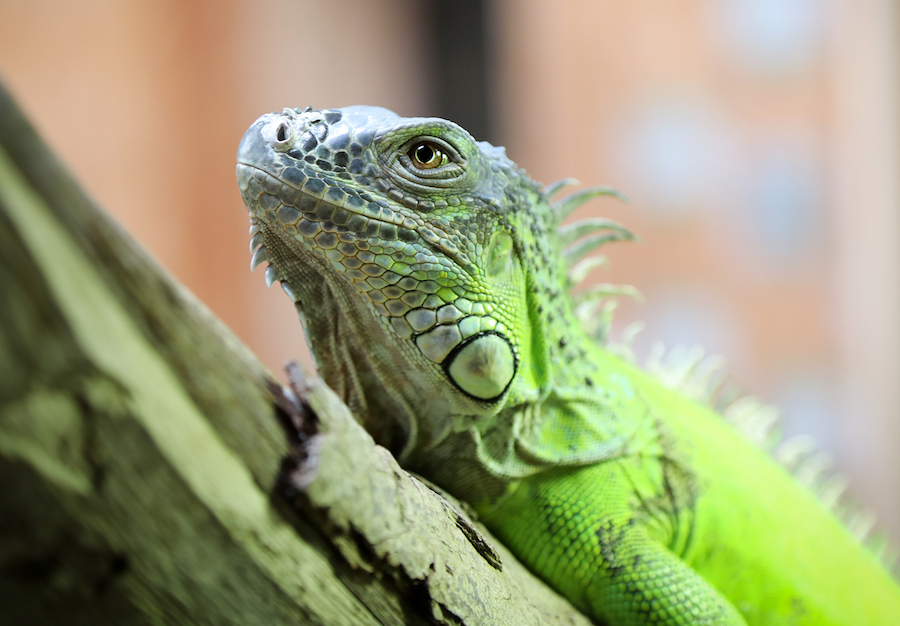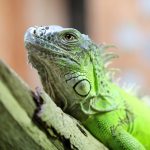

Animal centre ‘disgusted’ by ‘unattainable’ ScotGov fund

An Orkney animal rescue centre in need of funding has hit out with a scathing critique of the Scottish Government, after being rejected for what they have dubbed an “utterly unattainable” relief fund.
The centre has been experiencing financial hardship after COVID-19 forced them to close for six months. Now, after being rejected for the Zoo Animal Welfare Fund, proprietors of Fernvalley Wildlife Centre in Tingwall say they are “gutted,” and have branded the Scottish Government’s response to their funding request “a joke.”
Fernvalley Wildlife Centre is home to 87 animals, and is described by headkeeper Lisa Farrer as their “forever home.” She says: “We mainly focus on rescuing abandoned, abused and mistreated animals.
“We have all sorts, from ring-tailed lemurs right down to little mice.”
In a heartfelt interview with The Orcadian, Lisa recounted the worst case of animal cruelty she has experienced, with their two parakeets Delta and Echo. The pair were found tied up in a bag-for-life, thrown into a hedge and left for dead. Found after three days in this condition, a passer-by managed to take them to the vet, where they were brought round and passed on to the Fernvalley Centre.
This barbaric act still has an effect on the pair, as the male, Echo, had a broken-wing, resulting in a permanent injury, and can no longer fly. The female, Delta, was nearly bald, due to her stress-plucking her own feathers. They are now on the mend, but still show symptoms from their mistreatment.
Lisa started working with animals as a volunteer in zoos at age 14, before being offered a weekend job. During this time she studied for a degree on top of her working hours, becoming a qualified animal keeper.
She then moved to Orkney, and spent two years building the centre from the ground up, whilst living in rented accommodation, working a full-time job, and having her parents live on-site in a caravan.
She says this was a very stressful two years, but added: “You get to the moment where you get the first animal in, and you know you finally succeed.”
Days as a keeper include mucking out, lots of cleaning, and animal-enrichment, which involves getting toys out for the animals, and playing all sorts of games to keep them happy. She admits it isn’t always as glamorous as made out on TV documentaries!
Then came the COVID-19 pandemic.
The centre was forced to shut on March 21 — and subsequently, the centre missed the entire tourist season, taking a severe financial hit. This was compounded with high outgoing costs, including heating and food for the animals.
In a further cruel twist of fate, Lisa and her mother were both diagnosed with COVID-19.
All staff then had to be furloughed and sent home. Lisa said: “It meant that me and my mum, who were really ill, had to continue to feed 87 animals, with the virus, which I’d say was probably the hardest thing I’ve ever done, and we did most of it on our hands and knees.
“So that wasn’t a good month — that was right through April.”
Lisa recalls having to take breaks every ten minutes just so they could breathe. It was also a worry at the time that lemurs, being primates, could potentially catch the virus, unlike their other animals — and whilst this was not proven at the time, it meant they had to wear face-coverings.
She said: “We didn’t have another option, so we just thought we’ll just get on with it and hope for the best.”
In October, the Scottish Government announced the Zoo Animal Welfare Fund, meant for zoos experiencing financial hardship due to the pandemic, offering loans or grants of up to £100,000. Whilst “not primarily aimed at saving business,” the ScotGov website states “the fund is to provide targeted support to alleviate potential animal welfare concerns.”
Lisa, therefore, said it was “devastating” when after two months of back and forth with the Government, her application was rejected, and a further appeal denied.
According to Lisa, the application was rejected because they had sought a bounce-back loan toward the start of lockdown, which multiple financial advisors suggested they take to prevent bankruptcy and their animals being euthanised.
Lisa said: “We took it, knowing that we couldn’t afford the repayments, in the hopes we wouldn’t have to touch it.
“Now this grant has been refused. They said because we took the bounce-back, we’re not eligible for their grant.”
However, Lisa claims she was also told they wouldn’t have been eligible, had they not applied for the bounce-back either, as a stipulation of the grant as stated on the ScotGov website is that applicants have already tried to: “generate income in other ways, including applying for other government COVID-19 loans and grants, fund-raising, insurance claims, bank loans and overdrafts.”
Calling the situation a “catch-22” situation, Lisa said: “We wrote back to them saying ‘your fund is basically unattainable’.
“Because we put our animals above our own finances, we’ve been put in a position now that we’ve been refused the grant, and they’re saying they won’t appeal that.
“I’ve spoken to numerous other people that I know in zoos across the UK, and they’ve all been refused for it.”
After talks with the various zoo-owners with the same experience, Lisa says she believes only “one out of 400” has actually been successful.
She continues: “There’s still £100million, sitting in a government bank account, that hasn’t gone out to anybody except one, so we’re all kind of questioning whether this £100million actually exists at this point.”
The Orcadian reached out to the Scottish Government for a response to the centre’s claims, and for further information on their rejected application. Their response can be seen in full below.
On Thursday, December 7, the centre took to Facebook to share their plight, prompting an outpouring of support, donations, and animal adoption offers from the community.
Requests were made for the centre to set up an online fundraising page, which Lisa has now done on the “GoFundMe” website. Also, as of now, a petition online has surpassed 130 signatures for the Scottish Government to share out the remaining £100million among applicants.
She says: “Thank you for everyone that’s kind of jumped on the bandwagon to help out.
“The animals are really what’s keeping our heads high at the moment, they are kind of there as beacons of hope.
“The reason we’re doing what we’re doing is to keep those 87 little faces where they are, and happy.”
More information on the fundraiser, and the original Facebook post, can be found at www.facebook.com/fernvalleywildlifecentre